What can you say about Detective stories and novels? That they wouldn’t have gotten anywhere had Sir Arthur Conan Doyle not invented his iconic character Sherlock Holmes, that’s for sure. The first detective story of the modern genre type was written by Edgar Allen Poe, “The Murders in the Rue Morgue”, in 1841.* And even if the detective and its archetypical form of narrative detective structure as formulated in Poe’s short story was an inspiration for Sir Arthur Conan Doyle, his character Holmes is by far the one that set in motion the beloved rules which became the detective story: a strong, outstanding personality, the importance of details, the use of deductive reasoning applied to the material of the world, the righting of social (and personal) injustice, and a loyal (and documenting) sidekick.

Edgar Allen Poe
Sherlock Holmes is the most recognizable detective in Literature. He is well-known and loved for his wit, ability to notice minor details that crack cases wide open and his love for lingering around in his morning robe, as well as smoking a pipe. Sir Conan Doyle’s detective stories also featured Holmes’ loyal friend Dr. Watson, who provided the narration for all but a few of the stories, and who has become one of the most famous of sidekicks. Among the famous and infamous characters which line the hall of fame of personalities which inhabit the Holmesian canon are the characters Irene Adler, an actress who is the only one to outsmart Holmes, and Holmes’ archenemy Professor James Moriarty. These two particular characters find glad residence at the heart of Sherlock Holmes Fandom and discussion, and have been portrayed in various films by various actors. In fact, they too have found themselves being re-invented countless number of times along with the principles of the case Holmes and Watson.

Sir Arthur Conan Doyle
The two most recent and popular re-inventions of the Sherlockian Genre are Guy Ritchie’s two “Sherlock Holmes” action packed films starring Robert Downey Jr. and, now, BBC’s modernization “Sherlock”, a Television series created by Steven Moffat and Mark Gatiss. Both of these adaptions are pretty well done as well as being interesting interpretations of Sir Conan Doyle’s creation. Ritchie’s films move more towards the comedic while BBC’s series land a bit more in the realm of the dramatic. In this post I will analyze how both these Adaptations’ portray their re-invented characters, as well as their tone in the story telling.

Portrait for Strand Magazine, by Sidney Paget (where the famous “detective hat” first appears!)
Let’s start with the chief anti-hero himself: Sherlock Holmes. In “Sherlock”, he’s portrayed by Benedict Cumberbatch, who represents Holmes as a very cold personage who is often beyond the merely cruelly blunt. He openly shows great delight in murder cases, especially very elaborate ones, like serial killings. Holmes in “Sherlock” seems to not care for many people, except for very few friends. And even towards his friends he can be, what can only be labeled, a jerk. The interpretation of Holmes in “Sherlock” is a quite brutal one; He is often mean, but always is largely talented. Downey Jr.’s Holmes is portrayed less as mean spirited, but lacking and devoid of social skills. He is largely obsessive, but more affectionate towards Watson in this version. His erratic behavior is more bizarre than cruel, and Ritchie uses the peculiar personality for laughs. However, even Downey Jr’s version of Holmes can come off as rude at times, but it does feel less malicious than Cumberbatch’s version. Both Holmes are shown to be experts at detection though attention to details and extraordinary fighters.
The Holmes which gets more character development is Cumberbatch’s. During the first season of “Sherlock”, Cumberbatch depicts Holmes as not caring about anyone besides Watson and seemingly doesn’t care about the murder victims whose cases he is attempting to solve. However, in the last episode of season one, he is briefly shown panicking when a child is endangered by Moriarty and his detection solution (which he has counted on to save the child) is shown to be lacking a key point. In the second season, Holmes apologizes to people he says vicious things to and shows more concern for his friends. Even committing himself to heroic sacrifice to protect those close to him.

Moffat’s Sherlock Holmes
Downey Jr’s character doesn’t develop much in either film, be it “Sherlock Holmes” from 2009 or “Sherlock Holmes: A Game of Shadows” from 2011. The only change we see is his growing acceptance of Mary, Watson’s fiancée/wife. So, in terms of a character, Cumberbatch’s Holmes is more interesting as well as probably how Holmes is suppose to come across in Sir Conan Doyle’s stories. But Downey Jr. depiction in Guy Ritchie’s films is hilarious and often lightly and springingly entertaining. Both Downey Jr. and Cumberbatch bring their obvious talents to the character of Holmes and believe in the passion of their roles and its spirit. So my conclusion is that Cumberbatch’s portrayal of the detective is more serious and complicated, therefore more superior to Downey Jr’s. But both make excellent Homes.

Guy Ritchie’s Sherlock Holmes
The two versions of Watson also differ greatly from one another. In the Guy Ritchie’s version, Watson (Jude Law) is a soon to be married man who grows impatient with Holmes and the wild situations Holmes sucks him into. In the BBC version, John (as he mostly goes by, played by Martin Freeman) is fiercely loyal and quite enjoys the “adventures” Holmes gets him into. The BBC version of Watson as character additionally functions as a conscience for Sherlock, calling him out when he is rude or insensitive. John, in both versions of the characterization also dislikes Holmes butting in on his dates and mating habits, for example where Freeman objects to Holmes showing up on a date he has with a fellow doctor (“Watson: Actually I’ve got a date. Holmes: What? Watson: It’s where two people who like each other go out and have fun.”) in “the Blind Banker” or Law’s Watson who shows a marked distain of Holmes intervening on his honeymoon trip in “Sherlock Holmes: A Game of Shadows”. While Freemans Watson is more serious, Law’s portrayal of Watson is quite snarky, often throwing sarcastic comments here and there, for the purpose of creating comedy. Law’s line deliveries are quite good and I specifically enjoyed the scene in Ritchie’s first “Sherlock Holmes” film, where after getting thrown in prison Watson says: “I’ve been analyzing why I do all the things you ask me too. And my conclusion is: I’m psychologically disturbed”. This remark while being funny on its face also becomes a meta-comment on the Sherlockian writings which have questioned Watson’s strange unstoppable loyalty in the original stories, making a pretty funny reference to a second tier of literature about the writings of Doyle in the Sherlockian stories (Both series use the “Sherlockian Writings” from the Sherlock Groups to make in jokes to this faction of the Holmes Fandom).

Guy Ritchie’s Watson
Freeman’s version of Watson is, like with Cumberbatch’s version of Holmes, more dramatic and played more seriously. It is also made more clear in “Sherlock” why John and Holmes are such close friends: he is shown to be one of the rare people who truly thinks Sherlock’s gift in crime solving are amazing, vocalizing it pretty honestly, which flatters Sherlock. He’s also a fan of adventure, like Holmes, which makes it easy for them to bond. This makes the friendship between the two men seem more understandable and deep. The friendship is depicted more through bickering in Guy Ritchie’s films, with a few very tender moments. All and all, I find John from the BBC’s “Sherlock” to be a more interesting Watson, since he functions as both a faithful sidekick as well as a voice of reason, while Law’s more of a conflicted friend who becomes a devoted helper in solving crimes when needed.

BBC’s Watson
I will be blatantly honest and say that I’m not fond of either Guy Ritchie’s re-interpretation of Irene Adler, nor Steven Moffat’s. In Guy Ritchie’s films, Irene Adler is a spy for Moriarty who does do some impressive manipulation, but is just suddenly (spoiler!) killed by Moriarty in “A Game Of Shadows”. I wouldn’t have minded Ritchie killing Adler off if she would have died while putting up a fight. Instead, she’s declared too weak by Moriarty since she’s in love with Holmes, and dies by getting “poisoned” by an extreme form of tuberculosis.

Guy Ritchie’s Irene Adler
In “Sherlock”, Adler is introduced in the second seasons premiere episode “A Scandal in Belgravia”, where she’s over sexualized and is ultimately de-powered by needing Sherlock to save her. As Jane Clare Jones wrote at the Guardian: “Not-so-subtly channeling the spirit of the predatory femme fatal, Adler’s power became, in Moffat’s hands, less a matter of brains, and more a matter of knowing ´what men like´ and how to give it to them”. Jones’ whole article really spells out perfectly what was wrong about this characterization of Adler, so do read the essay on it here.
Strangely, both versions of Irene Adler are weakened by their attraction to Holmes, making it seem like all powerful women can be weakened through (superficial) emotion. Also, both Adler’s are somehow working with or helping out Moriarty, which is peculiar since the two characters never even met in the original stories. But none the less, it was nice that the BBC version hired a woman, Lara Pulver, around her forties (“Older”, as known in cinema and TV) to play Adler. And Rachel McAdams was pretty energetic in the 2009’s “Sherlock Holmes”.

BBC’s Irene Adler
Professor James Moriarty is perhaps one of the earliest archenemies to appear in fiction. Andrew Scott, who portrayed Moriarty in the BBC adaption, and Jared Harris, who plays Moriarty in Guy Ritchie’s films, had a difficult task: to live up to all the expectations from viewers. Now, Harris did an excellent job on portraying a sophisticated, intellectual villain who does pretty gritty stuff. He is convincing. However, he doesn’t come off as memorable as the deadly and controlling Moriarty. Scott’s first performance as Moriarty in the episode BBC “The Great Game”, the final episode in season one, was far too flamboyant and giggling to be truly frightening (and a bit of overacting further diminished the feeling). But, come “The Reichenbach Fall”, the finale of season two, Scott changes his performance tremendously. He depicted Moriarty as being wildly intelligent and Machiavellian, but bratty, arrogant and childish as well. His combination of the different character traits blended well. Not to mention making him quite unsettling, as well as probably what a person like Moriarty would be like. A criminal mastermind, but immature – which are a pretty scary combination. Harris, as the deadly and devious Moriarty, had the misfortune of starring in the second film in Ritchie’s “Sherlock Holmes” franchise, which previous film had already featured a memorable and great villain, Lord Blackwood (Mark Strong), who had a noxious charisma.

Guy Ritchie’s Moriarty
Considering how Moriarty, the archenemy of Sherlock Holmes, ends up in the shadow of another villain in Ritchie’s franchise, one can say Harris ends up a little weaker in comparison to Scotts. Scott was a wonderful surprise in “The Reichenbach Falls”, being the perfect deadly brat.

Moffat’s Moriarty
And lastly, on both franchises on a whole. Guy Ritchie’s both films are highly entertaining and a lot of fun to watch. BBC’s “Sherlock” is also entertaining, but a lot grittier and darker in tone (though “A Game Of Shadows” did have nasty bits as well). As the BBC is practically the Shakespeare of Television, it’s pretty obvious why, with its archetype-characters and the historical nature of the literature Holmes springs from, this adaption becomes firmly the better of the two.
In the Moffat-BBC version of this canon the characters are more fleshed out and complex, the writings more interesting and perhaps more alike the original stories. But all is not lost for Ritchie. The 2009’s film “Sherlock Holmes” did follow the tradition from the original stories in that Holmes gets to prove that the “supernatural phenomena” happening in the film aren’t really supernatural in the least and can be explained through reason and a insistence in the actuality of the lived world. This was a common theme in the original stories, for example in “The Hound of The Baskerville” and “The Adventure of the Sussex Vampire”. Ritchie’s films also had some nice scenes where Holmes figures out how to win fights through wit and thought. The Ritchie movies would have done well, and served the humanistic traits of the character and stories better, to highlight the scientific methods Holmes is known for using to solve cases. Oddly enough (as well) during “Sherlock Holmes: A Game of Shadows” Ritchie seem to be implying that the world his Sherlock Holmes was living in was (some form of) the perfect world; Watson and Holmes, for instance, dance a waltz together in a major Ballroom scene among politicians and diplomats. The year is supposedly 1891, But not a comment is made about this behavior (remember Oscar Wilde had been convicted and sent to prison in 1895 for the “Love that dare not speak its name”). So when Moriarty makes a speech about humans natural desire for conflict and fights, I felt like saying: “No, Moriarty, you’re the only one who’s mean in this universe. Everybody else is perfectly fine”. The point being that films, while taking place in the 19th century, are neither terribly nor historically accurate in this regard and the dance would have meet, at the least, with revulsion by the crowded participants of the dance. Yet this may be a mote point and the film doesn’t have to meet this historical standard since Ritchie’s take on both Sherlock films is in the sphere of the action comedy. Within this Genre who can argue with the Ritchie take? Both films are satisfying in this regard and are funny with good fight scenes and become, in this way, more than decent Sherlock Holmes adaptations.

The BBC/Moffat series “Sherlock”, in distinction to the Ritchie interpretation, is a lot more similar to the original stories, with Sherlock’s wits and talents, his interest in science and logic, his humanity and glaring faults, being a driving force in the series. The murders are a lot nastier and gruesome in the BBC outing and cleave more to Doyle’s sense of the uncanny which permeates the crimes that inspire Holmes’s interest. The Series characters, as well, have a sense of identity to the ones peopling Sir Conan Doyle’s works, even if the character of Sherlock is made a bit crueler and lacking in humanitarian compassion in this adaption than is found in Doyle’s writings. So in my humble opinion, this adaption of Sherlock Holmes is the better of the two.

Re-inventing Sherlock Holmes seems to be hip right now, which should be meet with no surprise. Holmes is a historically significant character for not only literature, but other Medias as well. His and Watson’s friendship is an interesting portrayal of team work and loyalty, Holmes’ skeptical attitude towards supernatural things is still one which should be grappled with in a world which forgoes reason for hate, and accurate subject for our consideration is given us in the Bravery of Watson and the Contemplation of Holmes. What better means to explore ourselves than through a Holmes as a character one can interpret in different ways and so make us wonder what might make us worthwhile.
Ritchie’s and BBC’s interpretations are both interesting takes on the character and now that the doorway has been newly opened to reconsider the dual character of Watson and Holmes it only remains to see what other adaptations will emerge next?
____________________________________________________________
*Poe was to write three stories informing the structure of the Detective Story and following the adventures of the “deductive” detective, C. Auguste Dupin. The most famous of these three tales is Poe’s, “The Purloined Letter”, a story which shares some slight similarities of tropes and narrative structure with “A Scandal in Bohemia” in which Irene Adler makes her famous appearance.














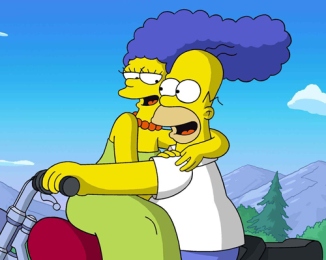

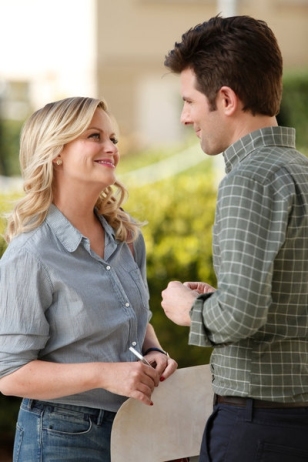
































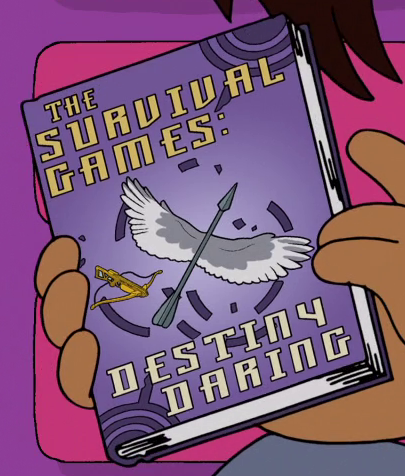


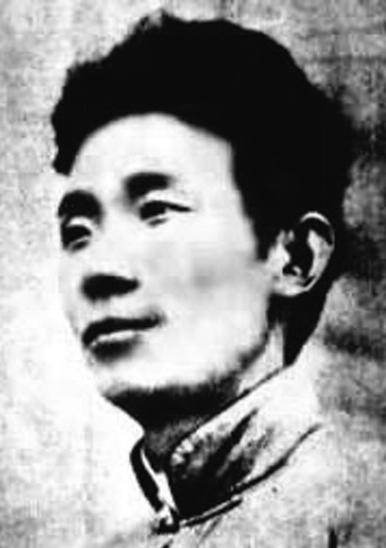



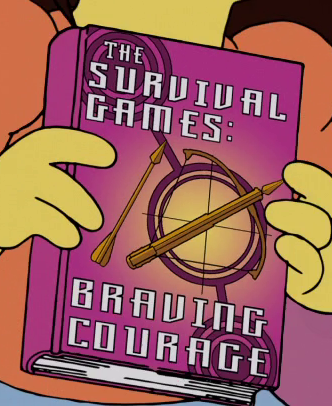
Short Blog Post Where I Gush Over Stuff I Like
Hello readers, I´m in New York right now! And just finished one major course at the university, with another course coming to an end (meaning lots and lots of time consumed by studying for the exam). So since I have quite little time, I would like to just briefly recommend some films, Tv series and Graphic novels. During this month I can say that a post on the Adult swim television series “Rick and Morty” will be posted soon enough, and a discussion about a “My Little Pony: Friendship Is Magic” episode is due this month as well. So stay tuned, and check out some of the stuff mentioned below.
The film “Martha Marcy May Marlene” is an excellent character study as well as a psychological thriller. It tells the story of a young girl who struggles with reuniting with her sister after escaping a cult. It´s directed by Sean Durkin and stars Elizabeth Olson, who does an excellent job depicting the complexities of being brainwashed, as well as how painful it can be in the battle of freeing oneself from the oppressions of authoritarian control. John Hawkes (known mostly by his roles in “Deadwood” and “Winter´s Bone”) is shockingly creepy as the cults charismatic leader. “Martha Marcy May Marlene” is also a riveting depiction of systematic sexual abuse and oppression of women. The cult has extremely old fashioned views on gender, and therefore rape is used as a form of getting the newly recruited women to submit. Martha, the films protagonist, not only undergoes such abuse herself but is also shown drugging another girl during such rituals. It´s disturbing, but unfortunately feels like an honest account of how different forms of groups and societies control women. The film easily passes the Bechdel test, and has a heart-breaking depiction of Martha´s relationship to her sister. Martha´s sister tries to understand and support her, but it´s a difficult situation. Few films have such an honest depiction of family: showing events of the interpersonal which even the most loving family members are not able to control nor come to grips with. It´s an unsettling, moving and tragic watch, and it´s a guarantee that once you´ve seen the film you´ll never forget it.
“The Snows of Kilimanjaro” is a 2011 French film that has nearly nothing to do with Ernest Hemingway. Despite the name being a little misleading, this film is a thought-provoking, political piece that is neither simplistic nor preachy. Directed by Robert Guédiguian, the film spins the tale of an elderly couple who are life-long Marxists and who, once they find themselves the victims of a robbery, are forced to question not only their ideologies but also themselves. The film unravels the robber’s story, the thief’s mother, the aforementioned couple and the couple’s children – with all of the characters attempting to come to terms with their feelings, thoughts, and views on the situation. The director cleverly gives each character reasonable arguments. The thief points out that despite the couples avowed Marxism, they still exist in the sphere of the privileged due to their class and that what they may consider fair is not always fair for someone else. The robber’s mother (who has abandoned all of her three children, forcing the thief to become the sole provider for his two underage brothers) points out that it was her boyfriends (the robber and his brothers have two different fathers) who pressured her into having children and then promptly abandoned her after the children were born. The film also attempts to convey how little acts of kindness can at times solve huge problems. A smart film well worth watching!
Original french poster
“Daddy´s Girl” by Debbie Drechler is a very nauseating, but powerful graphic memoir. When Ms. Drechler was a child, she was reputably molested by her father. This would later reflect in her relationships in college, where she undergoes a rape and isolation from her peers. The comic is short, but honest in its brutality and melancholy. Dreschler shows the many layers and forms of abuse, and how they intertwine with each other. It is filled with gut wrenching scenes such as when Debbie wonders if she is a horrible person, since god allows her father to molest her and if her mother is so distant to her due to her father’s abuse. Even more unsettlingly, the comics end is left open, making the reading experience even more a disturbing endeavor. It´s fairly harsh, but definitely worth the read.
Scene from “Daddy´s girl”
This recommendation is no doubt cliché, and therefore I´ll keep this extra short. I was first not sure whether I should or shouldn’t watch “Breaking Bad”, but finally caved in and have loved every minute of watching the first four seasons (fifth season still unseen). It follows a chemistry teacher named Walter White, who in order to pay for his cancer treatments takes up with his former student Jesse to cook Crystal Meth. The writing is tight, the acting superb and the comedic moments (bloody) hilarious. One of the best acting performances was done by Giancarlo Esposito, who plays the drug kingpin and Walters temporary boss Gustavo “Gus” Fring. Gus´ calm and collected demeanor is eerie yet fascinating, and as he switches between playing nice to ruthlessly violence one is reminded of such works as “American Psycho”. Gus has also an interesting back-story and motivations, which the show did an excellent job building up. “Breaking Bad” has also done one of the funniest bottle episodes, where Walt obsesses over killing a fly. Great series!
Walter and Jesse
That’s about it for now. Happy Watching and reading!